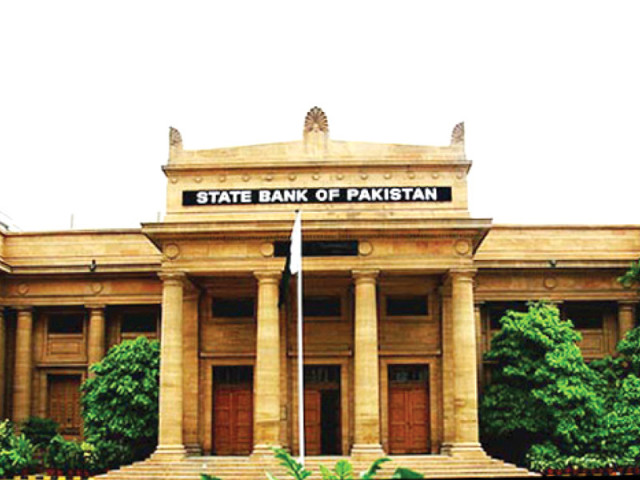Monetary policy: SBP leaves benchmark interest rate unchanged
Resultant inflation is expected to be between 4.5% to 5.5%

MPC reduced the target rate by 0.25% in May. Cumulatively, the MPC cut its target rate by 0.75% in the last fiscal year following a decrease of 3% in 2014-15. PHOTO: FILE
Addressing a press conference, SBP Governor Ashraf Wathra termed the increase of Rs461 billion in private-sector credit in 2015-16 (as opposed to Rs224 billion in 2014-15) “remarkable”.
“This indicates that existing lending rates together with the provision of liquidity are supporting the accelerating pace of private-sector credit,” Wathra said.
The SBP announces a target rate every two months, which serves as the benchmark interest rate for overnight funds in the interbank market. It is one of the tools the central bank uses to ensure price stability in the economy.
Decreasing the target rate poses the risk of high inflation, but also stimulates economic growth by making credit cheaper. In contrast, raising the target rate restricts the level of liquidity, which subdues consumer prices in the economy.
The central bank tries to strike a balance by targeting the overnight cost of funds at a level that promotes maximum economic growth without causing high inflation.
As measured by the Consumer Price Index (CPI), inflation for June remained at 3.2% on a year-on-year basis. The SBP is expecting inflation to clock up between 4.5%-5.5% for 2016-17.

The newly established Monetary Policy Committee (MPC), which is headed by the SBP governor and includes three independent economists as external members, takes the decision to revise or maintain the target rate after taking into account factors like anticipated inflation, foreign exchange reserves, commodity prices, etc.
The MPC had reduced the target rate by 0.25% in its last announcement in May. Cumulatively, the MPC cut its target rate by 0.75% in the last fiscal year following a decrease of 3% in 2014-15.
Wathra said Pakistan’s economic growth is “set to increase” in 2016-17. The impetus will be from a number of factors, he said, including an increase in investment under the Public Sector Development Programme (PSDP) and the China-Pakistan Economic Corridor (CPEC), improved energy availability, lagged impact of prudent monetary policy, healthy private-sector credit uptake, and improving law and order situation.
“Adverse supply shocks, continued declining trend in commodity prices, and any setback to the security situation may hamper the possibility of attaining the GDP growth target of 5.7% in 2016-17,” he said.
Responding to a question about the uptick in the frequency of Open Market Operations (OMOs), the SBP governor said it is usual practice for central banks around the world to manage liquidity in interbank markets to ensure interest rate stability.
The SBP either injects liquidity or mops it up in the interbank market whenever the overnight cost of funds shows signs of slipping out of the interest rate corridor. Changing the level of liquidity in the interbank market through OMOs helps the SBP maintain the cost of funds near the prevailing target rate.
“Effective injections to keep the market sufficiently liquid by the SBP have helped in a better transmission of monetary policy. This was visible in overnight repo rate which on average remained closer to the policy rate,” Wathra said.
The SBP expects increased economic activity may leave an impact on inflation. “Any upward adjustments in gas tariff, fiscal slippages, and supply disruptions pose risks to this assessment,” he said while referring to the expected inflation of 4.5%-5.5% for 2016-17.
In addition, uncertain global oil price, sluggish global demand, possible dampening impact of Brexit on global commodity prices, and difficulties in clearing the excess domestic food stock pose risks to the inflation forecast, Wathra said.
Published in The Express Tribune, July 31st, 2016.
Like Business on Facebook, follow @TribuneBiz on Twitter to stay informed and join in the conversation.



















COMMENTS
Comments are moderated and generally will be posted if they are on-topic and not abusive.
For more information, please see our Comments FAQ